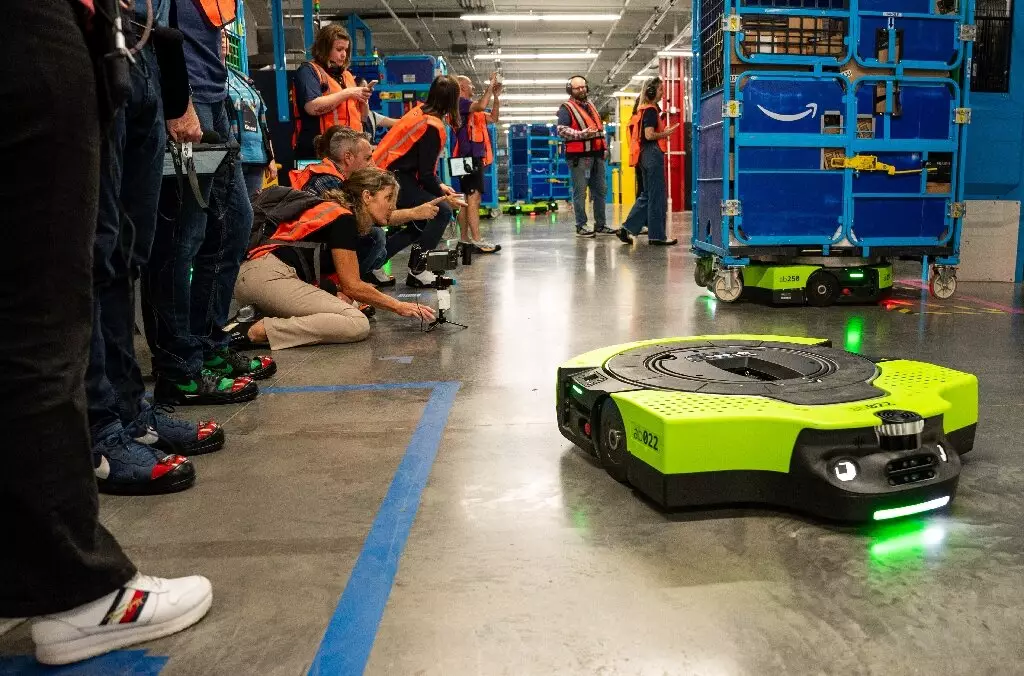Amazon has always been more than just a retail giant; it has evolved into an omnipresent force in daily life and business practices. From groundbreaking innovations in logistics to ambitious healthcare initiatives, Amazon is stepping further into consumers’ lives while facing challenges related to ethics and competition. In this article, we explore the recent developments within Amazon and the implications for consumers, competition, and the workforce.
At the heart of Amazon’s strategy is an obsession with speed, particularly when it comes to deliveries. Latest advancements in technology, such as a sophisticated computer system integrated into delivery vans, symbolize how Amazon aims to optimize this crucial aspect of its operations. On-the-ground discussions with Amazon’s Stores head, Doug Herrington, reveal that this technology could effectively streamline drop-offs by allowing delivery personnel to prioritize packages and stop efficiently. Herrington emphasized this link between efficiency and consumer behavior, suggesting that when deliveries are sped up, customers are inclined to shop more impulsively.
Looking ahead, Amazon has set ambitious delivery speed benchmarks for its Prime subscription service, aiming to achieve the fastest speeds globally by 2024. This focus on faster delivery is not just about keeping customers satisfied; it significantly reduces overall shipping costs—last year, Amazon managed to cut shipping expenses by $0.45 per unit, a noteworthy achievement considering its staggering sales volume. Such financial efficiencies contribute to the company’s impressive profits, which exceeded $30 billion in a year defined by $575 billion in revenue—numbers bolstered by both its formidable retail and renowned AWS cloud computing divisions.
Data and Advertising: A Double-Edged Sword
Amazon’s robust business model, often described by analysts as a “flywheel,” hinges on its Prime membership service, which underpins various sectors, including retail, advertising, and cloud services. However, success has not come without scrutiny. Allegations regarding monopolistic practices have put the company under the microscope of federal authorities, challenging its growth trajectory and ethical standing.
A significant part of Amazon’s revenue is derived from data analytics, overseeing user behavior and preferences to create targeted advertising campaigns and recommendations. Notably, Amazon’s foray into streaming rights—like acquiring the rights to NFL games—aims to mine deeper insights from specific consumer demographics, appealing specifically to sports fans for promotional activities. This integration of data across myriad platforms demonstrates Amazon’s prowess but raises ethical questions about data privacy and competition.
In a bold expansion into health care, Amazon is reinventing how patients access services. The introduction of telehealth via its One Medical service exemplifies this push, offering Prime members video consultations for just $9 a month. This initiative taps into Amazon’s existing delivery infrastructure to expedite prescription filling, with a goal to ensure rapid delivery within 24 hours for almost half of its customers by 2025.
Hannah McClellan, chief of Amazon Pharmacy, stated, “We’re building a pharmacy in your pocket that offers rapid delivery right to your door.” This venture into healthcare signals Amazon’s ambition to create a comprehensive ecosystem, positioning itself as a pivotal platform catering to a vast range of consumer needs.
Challenges and Criticism: Balancing Automation and Worker Safety
Despite its ambitious growth, Amazon has not been immune to criticism. The push towards an increasingly automated workforce raises safety concerns. Robotic technology has certainly enhanced operational efficiency—like robotic arms in logistics centers minimizing manual labor—but the pressure for rapid deliveries has led to allegations of unsafe working environments. Critics argue that this focus on speed has made Amazon warehouses more hazardous compared to industry averages, posing a serious ethical dilemma for the company.
One proposed solution is Amazon’s introduction of an “automated micro warehouse,” set to open next year adjacent to a Whole Foods location in Pennsylvania. This innovative model promises a high-tech method of fulfilling online orders with the aid of robots—an effort to merge e-commerce with traditional grocery shopping experiences. However, employee welfare remains a central issue that the company must address as it expands its operations.
Amazon’s relentless pursuit of innovation has undeniably made it a central player in modern retailing, affecting various facets of consumers’ lives. From the logistics of delivery to ventures in healthcare and advertising, Amazon’s reach continues to widen. Nevertheless, as the company grapples with ethical scrutiny, accusations of monopolistic behavior, and labor safety challenges, the question lingers: will Amazon’s all-encompassing approach to marketplace domination ultimately serve the best interests of consumers, or could it become an overreach that stifles competition and compromises ethical standards? The unfolding narrative of Amazon will certainly reflect not just business accomplishments but also the social and ethical implications of its expansive growth strategy.


Leave a Reply